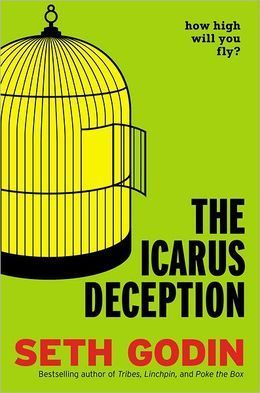
Linchpin: Are You Indispensable?
Book Description
What if your uniqueness could reshape the world? In "Linchpin: Are You Indispensable?", Seth Godin reveals the secret to becoming an invaluable force in any organization. With a blend of sharp insights and inspiring anecdotes, he challenges the mundane, urging individuals to embrace their creativity and emotional intelligence. From the corporate battlegrounds to the realm of artistry, discover how to turn fear into a catalyst for change. It’s a call to arms for those ready to step up and stand out. Are you ready to become the linchpin that no one can afford to lose?
Quick Book Summary
"Linchpin: Are You Indispensable?" by Seth Godin challenges the traditional concept of work by advocating for individual initiative, creativity, and emotional intelligence as vital elements for becoming truly indispensable in any organization. Godin argues that the modern economy no longer rewards compliance or rote labor; instead, it rewards those who take the risk to stand out, connect authentically, and bring artistry to their work. The book draws on stories and practical examples to show that anyone can choose to be a linchpin—a creative force that organizations can’t function without. By facing fears, overcoming the pressure to conform, and actively sharing one’s unique gifts, readers can transform their own experiences at work and reshape the world around them.
Summary of Key Ideas
Table of Contents
Breaking Free from the Factory Mindset
Seth Godin opens with a critique of the “factory” mindset—a relic of the industrial age where workers were interchangeable and rewarded for following instructions. In today’s economy, Godin argues, this model is obsolete. Organizations now need people who do more than simply what they’re told. To be indispensable, one must break from this conformity and become a linchpin: someone who invents, solves problems creatively, and brings unique value that can’t be replicated or outsourced. This shift requires a deep change in thinking, where individuals recognize that their true security comes from their irreplaceability, not from obedience.
Cultivating Emotional Labor
A central pillar of Godin’s argument is the concept of “emotional labor”—the intentional effort to bring humanity, compassion, and emotional intelligence to work. Linchpins don’t just deliver tasks; they create positive emotional interactions, inspire others, and handle the toughest interpersonal challenges. This intangible effort is what differentiates those who are merely competent from those who are truly indispensable. The ability to lead, empathize, and connect authentically gives linchpins their unique power and ensures they are valued beyond their technical skills.
Embracing Artistry and Creativity
Godin emphasizes that true artistry exists in every field, not just in traditional creative pursuits. Becoming a linchpin means treating your work as a form of art—putting care, innovation, and personal expression into what you do, regardless of your job title. Artistry is about creating change, solving complex problems, and delivering above expectations. This creativity sparks progress and transforms work environments. Godin provides numerous anecdotes illustrating how individuals who approach their roles with this artistic mindset are able to distinguish themselves and foster lasting impact.
Overcoming Resistance and Fear
One of the most significant barriers to becoming a linchpin is resistance—the fear of failure, criticism, or being different. Godin refers to the "lizard brain," the primal part that urges us to play it safe and blend in. He explains that courage is developed by recognizing fear and choosing to act in spite of it. Linchpins are not fearless, but they see fear as a sign they are on the right track toward meaningful contribution. Overcoming internal resistance is a daily practice and key to sustained growth and indispensability.
Building Genuine Connections
Ultimately, Godin argues that the foundation of being a linchpin is the ability to build genuine, trust-based connections. Indispensable people give without expectation, share information freely, and seek to enrich others through their work and presence. In the process, they create value that reaches far beyond their job descriptions. By adopting these principles, anyone can escape mediocrity, unlock their unique gifts, and become a change agent not just in their workplace, but in their greater community.
Download This Summary
Get a free PDF of this summary instantly — no email required.





